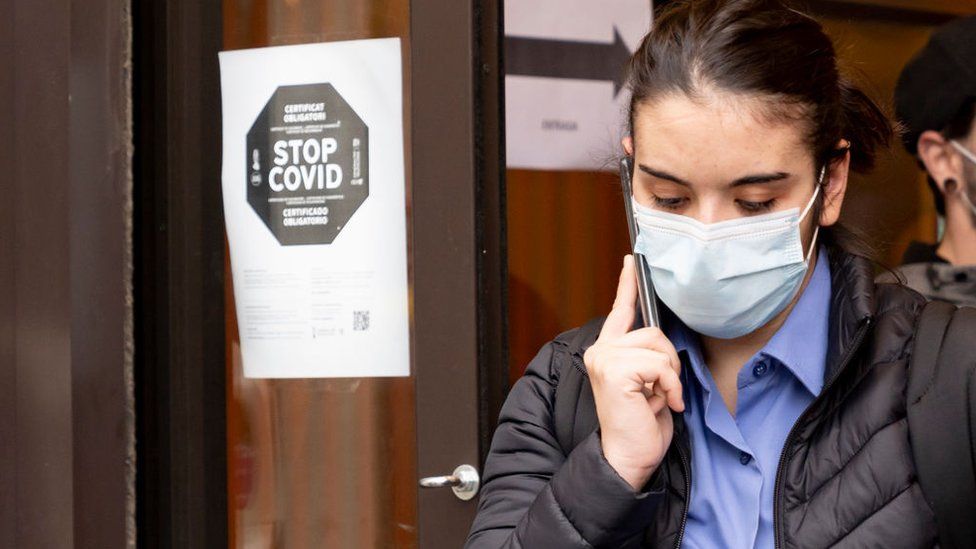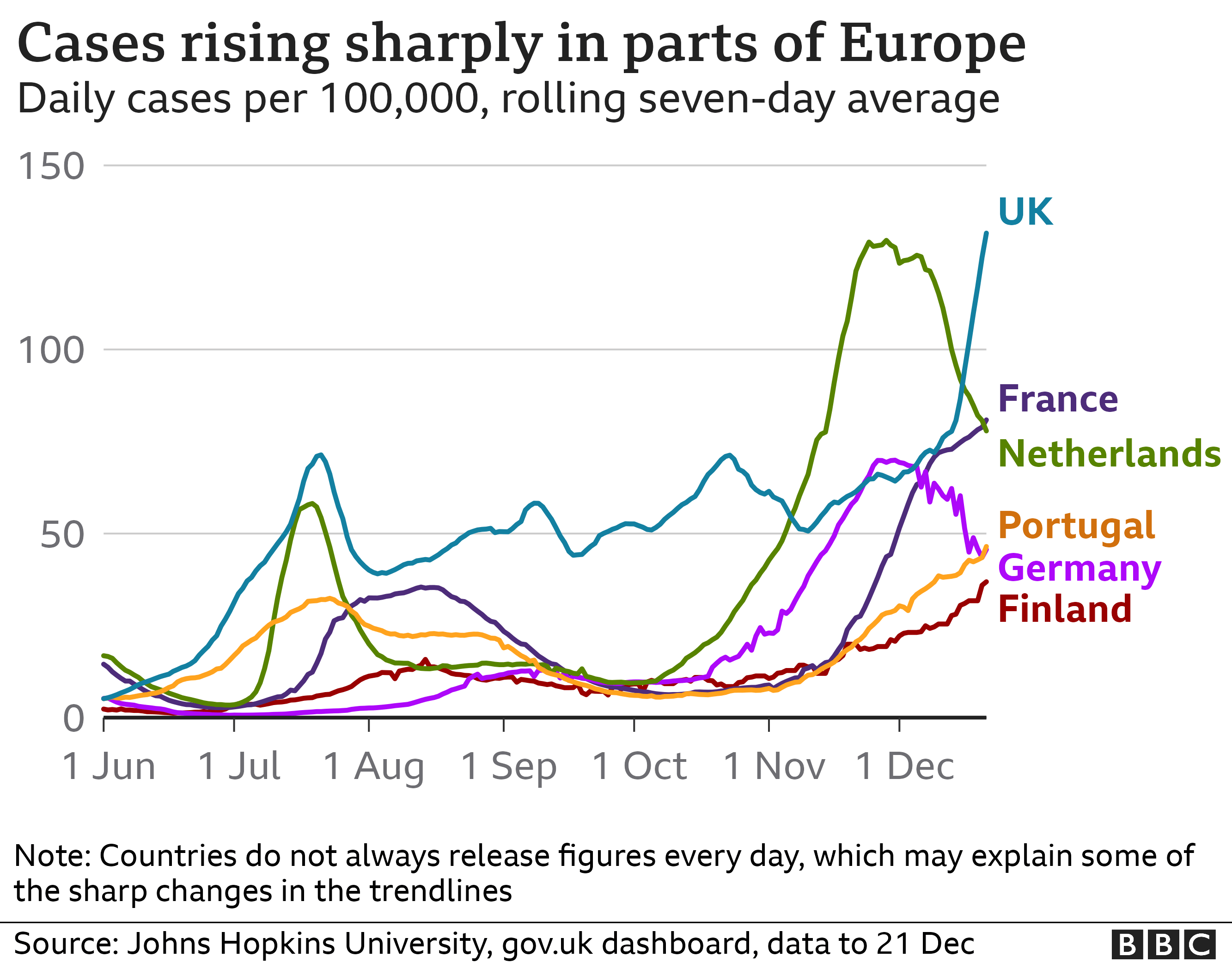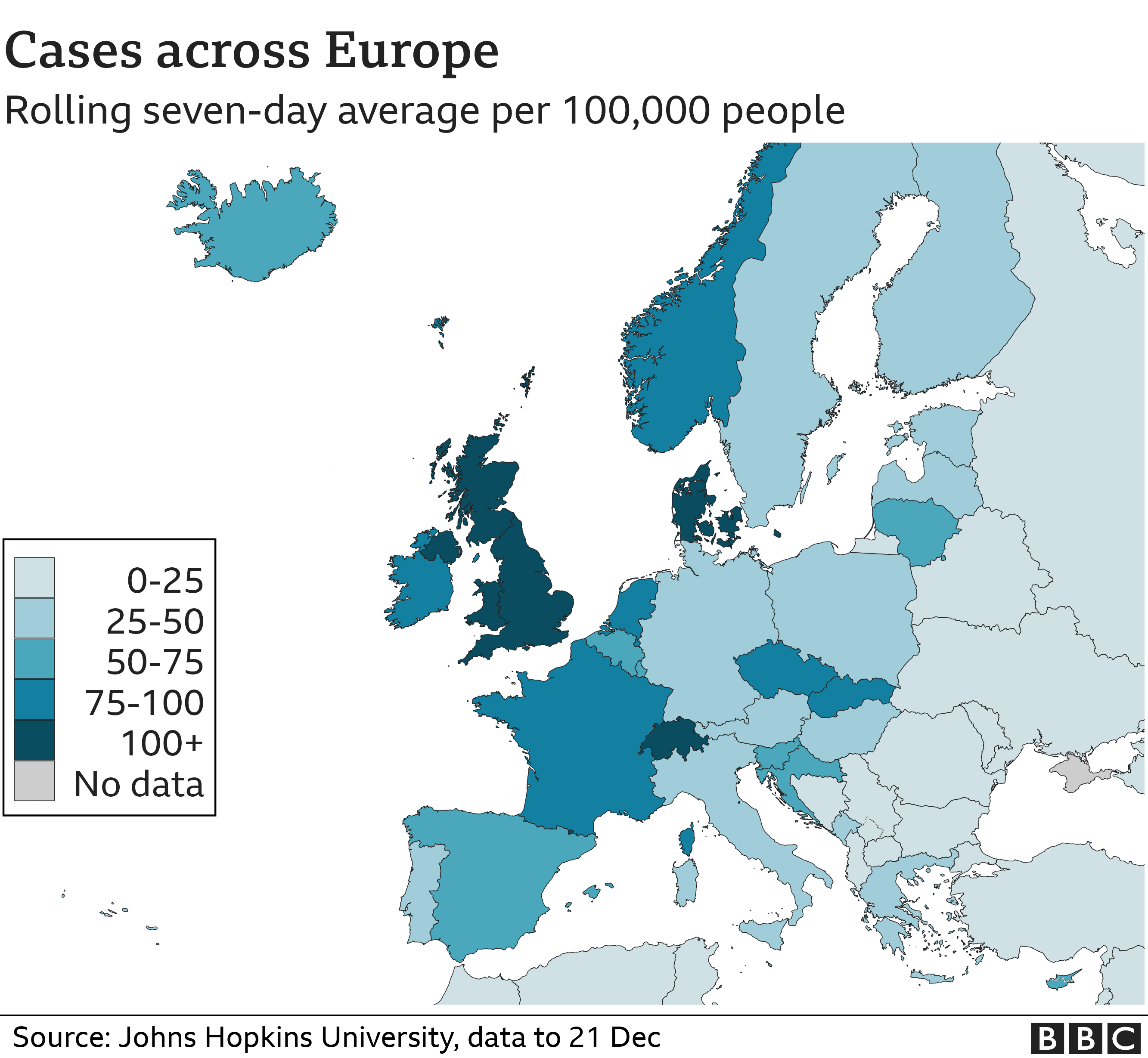As the Omicron variant spreads around Europe, countries tighten restrictions to brace for another wave.

Image source, Getty Images
Spain’s Prime Minister Pedro Sánchez has announced plans for mandatory face-coverings outside in response to a dramatic rise in Covid-19 infections.
The rule was dropped only six months ago, but Spain saw a record 49,823 cases on Tuesday.
The Omicron variant is spreading across Europe fast and the World Health Organization says the region is once again at the epicentre of the pandemic.
In Spain, the variant is believed to account for almost half of infections.
Mr Sánchez told regional leaders the mask measure would be put to ministers and signed into law before Christmas. He also announced an acceleration of the vaccine booster programme with greater involvement from the military.
Spain had a very successful vaccine rollout and during the autumn months it avoided the kind of strict measures imposed by other countries. But the Omicron variant has spread in a matter of days, and the incidence rate has jumped to 695 cases per 100,000 people which is higher than a year ago.
Parents will be able to celebrate Christmas with their children. Spain has
resisted, it has not given up and it is moving forward

Last Christmas some Spanish regions sealed off their borders which limited travel. But, in parliament on Wednesday, the prime minister sought to reassure the public, saying: “Don’t worry, families will be able to celebrate.”
The WHO’s Europe regional director, Hans Kluge, said the Omicron variant was already dominant in the UK, Denmark and Portugal and would likely become the continent’s main variant “in a couple of weeks”. Another 106,122 cases have been recorded in 24 hours in the UK.
Sweden has reported a 30% jump in Covid cases in the past week, and it has joined a growing number of EU countries requiring a negative test for travellers arriving there. The measure will take effect from 28 December. Finland announced a similar requirement on Tuesday night.


The head of Germany’s Covid crisis team, Maj Gen Carsten Breuer said the new government’s target of 30 million vaccinations by the end of December was close to being met, with 28 million doses already delivered. “Only giving the booster, only increasing vaccine protection gives us any chance of at least keeping the Omicron wave at bay,” he told German media.
France began vaccinating children between the ages of five and 11 on Wednesday, but said boosters would not be offered to 12 to 15-year-olds for now.
Germany is among a number of European countries to introduce restrictions either side of the Christmas break. From 28 December private gatherings will be limited to 10 people and nightclubs will shut.
Austria is to start closing restaurants at 22:00 from Monday 27 December and it has recommended that people celebrate the new year on a small scale. The evening curfew is being used as a signal that it is “no time to celebrate”, according to Chief Medical Officer Katharina Reich.
While Portugal has ordered bars and nightclubs to shut from Sunday, in Finland bars and restaurants will have to close at 18:00 from 28 December and have limited seating.
The Netherlands has already brought in tighter restrictions, announcing a strict lockdown on Monday.


Omicron was first identified in southern Africa last month but has now spread around the globe. Data suggests it may be more infectious, but there is no evidence yet that it causes more serious illness.
The variant has been detected in at least 38 of the 53 countries in the WHO’s European region – which includes Russia and Turkey – and is dominant in several, the organisation says.
WHO Director-General Tedros Adhanom Ghebreyesus warned governments on Wednesday that no country could “boost its way out of the pandemic”. Booster programmes would merely prolong the crisis, he said, because they were diverting supply to countries with high vaccine coverage and thus “giving the virus more opportunity to spread and mutate”.
He added that WHO projections showed there would be enough doses to vaccinate “the entire global adult population and to give boosters to high-risk populations by the first quarter of 2022”.
This video can not be played